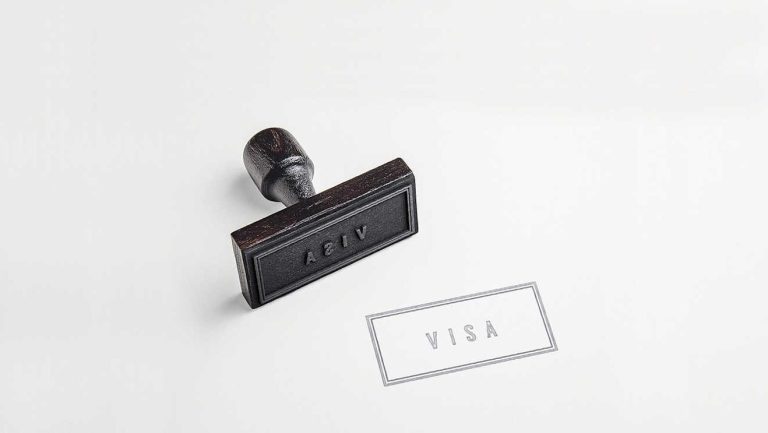MOVING TO & LIVING IN FRANCE AFTER BREXIT
Many clients were unaware that they now require a visa to live in France for more than 3 months. Other clients (who were aware of the need to obtain a visa for France), were concerned that the visa application process would be too difficult or complicated.
In this article, I will seek to reassure you that:
- it is still perfectly possible to move to France in 2023.
- If you are a UK National you can stay in France more than 90 days at a time.
- It is still possible for UK nationals (like Canadians, Americans & Australians) to live in France for 1 year to 4 years and also apply for permanent French Residency.
Here we outline the steps you need to follow for moving to France after Brexit and how you can live in France long term.
Moving to France after Brexit
During 2020, we were inundated with customers who were looking to move to France prior to the Brexit deadline on 30 December 2020. We even had 3 different sets of clients who travelled down through France on 30 December to take up residence before the curtain came down.
I understood the reasons behind this. For a lot of people it was an emotional decision - they didn't want to lose their European identity. For some clients, they simply brought forward their plans to retire to France. Also, for a lot of our clients under 50, it was also driven by economic necessity. If they wanted to continue to live and work in Europe post-Brexit, then they had to move to retain the Freedom of Movement rights.
People will still want to move to France during 2023 and it is perfectly possible for them to do so. I have received a lot of emails recently from clients and they all start the same:
. . . I understand that I can now only stay in France for a maximum of 90 days . . .
To correct this misunderstanding, I will now outline the process you can follow to apply for a long stay visa in France.

If you simply want to visit France for a holiday or stay for a couple of months, then you do not need a visa for doing so. In that regard, nothing much has changed with Brexit (although you will need to take additional steps concerning driving in France, bring your pets, mobile phones, insurance, etc).
However, if you want to stay longer than 90 days at a time, then you will need to apply for a visa. The process is quite simple and only costs €99. There are 2 visa options, both of which relate to temporary stays in France (of less than 12 months):
- a long stay visitor visa which allows individuals to live and in certain circumstances, work in France. The visa is usually issued for a period of 1 year, but longer periods can be agreed;
- a temporary long stay visa if you plan to stay in France for between 3 to 6 months in a year;
The benefit of this temporary long stay visa is that you will not be classed as resident in France (and thus not obliged to complete a French tax return documenting your worldwide income).
To obtain a long stay visa for France you will need to:
- obtain rental accommodation for the duration of your stay in France
- have proof that you have sufficient income to support yourself during your stay (currently €65 per day)
- take out travel/health insurance or possess a Global Health Insurance Card (which replaced the EHIC European Health Card)
- have a valid passport with at least 15 months before expiry
A lot of the visa application process has been transferred online, although in certain circumstances you will need to visit the French Consulate General in London (or your home country).
French visa application process
It takes about 5 minutes to complete the visa application process (although assembling the supporting documentation may take longer).
- You need to access the visa application portal France- Visas
- You will need to complete the visa application form. This will need to be printed out and signed & date. The application form will ask you for your details (name, date and place of birth, etc) and also your reasons for travelling to France. You will also have to sign a declaration promising not to exercise any professional work activity in France (although you can continue to work remotely from France). The original of the application form will need to be sent to the French Consulate (or their outsourced administrator), together with the application receipt number issued by France-Visas..
- You will need to provide a number of supporting documents;
- a scan of your passport. The passport needs to have been issued less than 10 years ago and contain at least two blank pages. The passport should be valid for the length of the long stay visa plus a period of 3 months beyond the date that you will leave France.
- 3 passport-sized photograph (see photo requirements Schengen visa).
- If you are not a national of your country of residence: proof that you are legally resident in that country (e.g. residence permit).
- 3 months of bank statements showing your full name and address, and proving that you have enough funds for the whole duration of the trip. If you are financially supported by your spouse/partner you will also need to provide a copy of your marriage certificate and the bank statements of your spouse/partner.
- Proof of accommodation in France (a rental agreement or an attestation d'herbergement signed by the Landlord) or if you own a property in France a copy of the Title Deeds of the house.
- a copy of your travel insurance policy (which must cover all expenses for medical, hospital treatment and repatriation costs for medical reasons) and or a health insurance policy or Global Health Insurance Card (see GHIC application process)
Your visa application must be made between 30-90 days prior to your travel to France (it is not possible to apply for a long stay visa earlier than 3 months before your travel). Once you have submitted your application via France-Visas, you will have a personal client area where you can follow the progress of the visa authorisation.

If you arrive in France from 2023 onwards (on a long stay visitor visa) and you decide that you want to live permanently in France, then you are still able to apply for French Residency.
We use the term French Residency to cover anybody looking to live in France for 6 months or more. In reality, French Residency is another name for a Long Stay Visa. France does not have an American-style Green Card system or an Australian-style Permanent Residency. You can either live in France on a long stay visa or you can apply for French Nationality.
The only thing which has changed (following Brexit) is that the income requirements have increased (from around €650 per month (for a single person) to around €1,329 per month) and you now need to meet a minimum level of French proficiency (but this is still only really holiday French).
The first common misconception about French Residency, is that people often believe that there is a single residency permit (often referred to as the Carte de Sejour). In actual fact, there are multiple residency permits/Long Stay Visas in France.
Applying for French Residency after Brexit
A long stay visa is basically a sticker or a stamp which is entered onto your passport by the French Consulate in your home country, which allows you to enter France and stay here for pre-determined time. Once you have your long stay visa, you are then able to apply for a Residency Permit in France (which is called a Carte de Sejour).
The Carte de Sejour is a physical card which contains your photograph and signature. It is normally issued for a longer period than the visa. Like the long stay visa, there are different catagories of Carte de Sejour.
French Residency Permit

The Carte de Sejour, or Titre de Sejour as it is legally known, is the residency application process which applies to all nationalities, including Europeans. The Carte de Sejour was first introduced in France in 1926 and it regulated all foreign workers, requiring them to carry an identity card. There are 5 different types of residency :
- a long stay visa which allows individuals to live and in certain circumstances, work in France (sometimes referred to as 'Talent Passports'). The visa is usually issued for a period of 1 year, but longer periods can be agreed;
- a temporary residency permit, usually lasting 6 months and covering various non-work related reasons for residing in France (such as asylum seekers, voluntary work, people caring for sick relatives);
- a multi-year residency permit, which is usually issued to current holders of a long stay visa and enables them to stay in France for a further period of up to 4 years *;
- a retired persons residency permit, which is valid for up to 10 years and relates to individuals who live on their own resources, whether pension, investment, rental income or other source of income;
- the Residency Permit or Permanent Residency, which allows individuals to live and work in France and is valid for up to 10 years.
* The multi-year residency permit has a number of categories depending on your reasons for living in France:
- student - you're undertaking a recognised course of study or are on a study placement.
- employed - you are employed by an individual or a company and have a contract of employment.
- self-employed - you run a business or small enterprise on any of the fiscal regimes, including as a microentrepreneur.
- job search or business creation
- private or family life (for British Nationals married to (or dependents of) French nationals or British Nationals with existing Residency Permits)
Applying for a Carte Sejour in France
To apply for this permanent residency (or as everyone calls it, the Carte de Sejour), you are required to make an appointment at your local town hall or Préfecture (local government headquarters) and present the following information:
- your passport and visa/existing residency permit (original documents and a photocopy)
- 3 or 4 passport photos,
- your arrêté de nomination (work contract details) and procès-verbal d'installation (signed work contract),
- Proof of permanent address in France (EDF electricity bill or the house deed of sale (acte de vente) for a house bought in France or a signed lease agreement for the French address)
- Birth certificate (for children less than 3 months old) and official French translation,
- Information on your marital status, and if necessary, on those of your spouse and children (usually marriage and birth certificates with French translation)
- Proof of sufficient and stable financial resources for 5 years (pay slips, tax notice, certificate of pension payment, bank certificate, property income, etc.)
- Declaration on honor concerning the continuity of your stay in France (except exemption by the administration)
For non-European Union citizens, there is also a requirement to meet a minimum French language proficiency of Level A2.
Once you have deposited these documents, you will then receive a document called a récépissé from the Préfecture that proves you are in the process of applying for your Carte de sejour. Normally, you are not allowed to leave France until you receive your actual Carte de sejour (which can take anywhere between 4-8 weeks).
The French residency permits also allow the holder to travel freely throughout the Schengen zone countries for periods of up to 3 months (without the need for further visas).
Living in France after Brexit
So hopefully, I have been able to reassure you that it is perfectly possible to still move to France after Brexit and to continue living in France if you decide to stay here. Brexit has made the process a bit more complicated (and expensive), But this is where the rubber hits the road with Brexit. I never believed that there would be some calamitous, cliff-edge impact following Brexit. Instead there will just be these small bureaucratic hurdles that the UK will need to overcome. But for the average person, we can continue to live and work in Europe, it just means that we have more forms to fill in and we need to be a bit more organised.
All that you need to remain focused on is that warm summer evening in the future, where you are sat on your terrace with a nice bottle of French wine, a Brie oozing out on the plate and the crickets chirping away.







